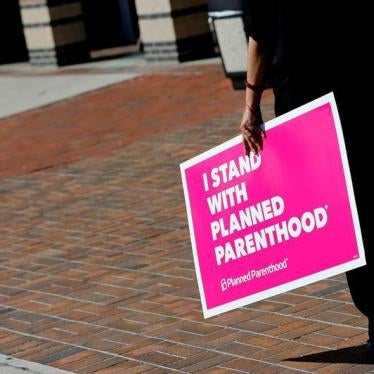Though there is dissent about its origin, the first celebration of Mother’s Day was a war protest, one envisioned as a day of peace by Julia Ward Howe—a fascinating woman—whose proclamation in 1870 urged women to come together first to “bewail and commemorate the dead” and then to “solemnly take counsel with each other as to the means whereby the great human family can live in peace.” Far from being a celebration of motherhood, it was a powerful call to action. (Then, in 1908, Anna Jarvis, a West Virginian, designated a day to honor her mother; it became an official U.S. holiday in 1914.)
Nearly a century and a half later, Mother’s Day for the most part has been stripped of any activist past and instead focuses on the private and commercial adulation of mothers and motherhood. The “aspirational” image of motherhood is the upper-middle-class white woman juggling work and home, in style, and with perfect abs.
That image of mothers and motherhood, exalted as it is in culture and political rhetoric, is far from the reality for the majority of women who are mothering in America today.
The gender pay gap continues to hurt women and their families. All things being equal—educational attainment and same occupation—women still earn 8 cents less on the dollar than men. One study found that the gap between mothers and fathers, both working full time, is 29 cents.
Underlying all of this is the cruel and unbelievable fact that the United States, unlike the vast majority of the countries of the world, does not have a federal paid family leave—forcing many women to return to work after childbirth before their bodies are properly healed or their children are ready. At the same time, the cost of child care in the United States is astronomically high, with 71 percent of parents in one recent poll saying it is a very serious or somewhat serious problem.
Recently, the Trump administration issued a policy that reverses the presumption against holding pregnant women in immigration detention—leaving pregnant women in facilities that lack adequate health care and separated from family and support networks.
Immigrant mothers detained by U.S. Customs and Border Protection often aren’t treated respectfully. Our research shows the stress that mothers are under there; one mother of a 5-month-old told us that she stopped lactating because of the stress and then wasn’t provided formula appropriate for her baby.
Legalized discrimination—such as allowing adoption agencies to prohibit same-sex couples from adopting, or permitting health care providers to deny reproductive care to lesbian, bisexual, and transgender women—is endorsed by more and more states and even in proposed federal regulations. As one mother in a same-sex couple seeking reproductive health services told my colleague, “[My] passion to have a family was so strong, and to realize that one person’s beliefs could just overrule that—you just feel desperate.”
U.S. laws, policies and practices are making many mothers feel desperate, and that desperation falls disproportionately on women of color, women living in poverty or without adequate income, women without legal immigration status, or those with disabilities.
It’s why we need to get back to the roots of Howe’s original Mother’s Day—and why a coalition of groups led by women of color and others that support them are calling for a “Mamas Day” to lift up black mothers in this country. Black women earn less, on average, than their white counterparts, their infants die at twice the rate of babies born to white mothers, and they themselves are nearly four times as likely to die in childbirth as white mothers.
Congress can help to make radical changes to benefit all the country’s mothers, by supporting H.R. 1318, the Preventing Maternal Deaths Act, and S. 1112, the Maternal Health Accountability Act, which are aimed at reducing the maternal death rate
They should also support the Mothers and Offspring Maternal & Morbidity Awareness (MOMMA) Act when Rep. Robin Kelly (D-Il.) introduces it to help improve the access black mothers have to quality maternal health care by, among other measures, ensuring that hospitals and providers adopt best practice protocols.
It’s time we started caring for mothers in the United States the way that they care for us.










